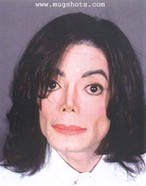
When I look back on my first reaction to I’ll Be There, it’s hard to believe I was alone in wondering whether it was healthy for a child to be singing a song like that.
It seems more likely that the most unusual thing about my own reaction was just the degree of my indifference to the name of the group that recorded the song—which resulted in my later failure to recognize that the little boy who sang lead in it was Michael Jackson.
But if other people could connect the proverbial dots, why did so many people later simply scoff, as I had done, at what Michael Jackson went on to do to himself?
Although they may not be trained psychotherapists, is it really that hard for most people to muster a certain intuitive empathy for somebody in the grip of so much pain and self-hatred as to mutilate and destroy his identity—not only emotional, but also physical—with the obsessive tenacity that Michael Jackson has shown?
I don’t think most people would react that way if Michael Jackson were a just kid from down the block who continued to live in the old neighborhood. Common human decency would cause most people to at least pause and wonder what was driving him, and to sense the presence of some kind of suffering, however unexplained its source might be.
But apparently something different occurs when people become celebrities.
We seem to have a way of making our celebrities the subjects of a bizarre and unholy Eucharist.After devouring them in a frenzy of adulation, in the end we simply spit out the bones—only pausing for moment to gaze with bored contempt at the smallish pile of rubbish left behind.
Epilogue
|
Michael Jackson died a little more than a year after this article was written, and suddenly the pendulum of public opinion swung back to adulation. As for simple acceptance as a human being, in death as in life, this has continued to elude him. |


